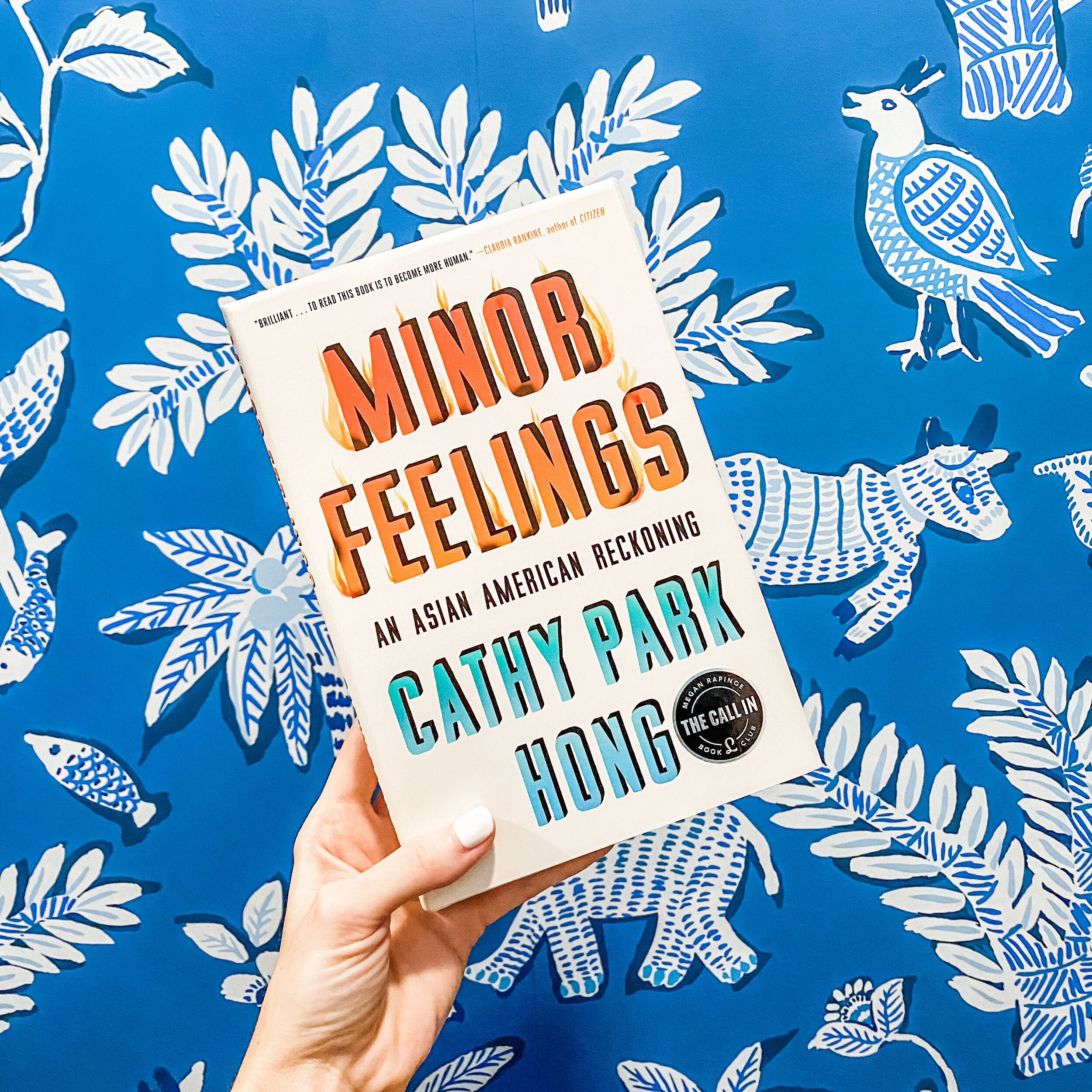Minor Feelings by Cathy Park Hong
Book Review
Interrupting my spooky season content for a quick review of this fantastic nonfiction book!
Minor Feelings is Megan Rapinoe’s October selection for her new book club, The Come Up, with Literati. I’m so glad she chose this collection of short stories by poet Cathy Park Hong, as it is truly a perfect book to inspire discussion on race, ethics, art, history and culture.
Drawing from her experiences as an Asian American woman raised by Korean immigrants, Hong lays bare all her thoughts, feelings and insecurities surrounding her identity as an “other.” The title of the book “minor feelings” describes what Hong refers to as a “radicalized range of emotions” that arise from having one’s racial experience and reality continually questioned or dismissed (aka gaslighting minorities into believing in American optimism).
In this series of seven short stories, Hong reckons with the model minority myth that is attached to Asian Americans as well as the fraught history of immigration, degradation and dehumanization.
The book contains many mini history lessons pertaining to the treatment of minorities and specifically Asian minorities throughout modern-American history. For instance, did you know that from 1917 - 1965, the United States banned immigrants from all Asian nations? It wasn’t until the US became obsessed with eliminating Communism that the government decided to rescind the ban and welcome more nonwhite immigrants into the US to witness first-hand the superiority of democracy.
Another noteworthy historical point included in the book… Over 3 million Koreans died in the Korean War (approximately 10% of the population), yet when the US went to war with Vietnam, South Korea - which was at the time one of the poorest nations in the world - sent over 300,000 troops into battle on behalf of the West in order to make “a moral repayment of [South Korea’s] historical debt to the free world.”
Hong reflects on the racial slurs she often heard growing up and the ever-common insult, “go back where you came from.” *Insert fuming eye-roll*. As Hong explains, what these ignorant bullies fail to recognize is that many of the immigrants arriving in the US post-1965 saw their “lineage decimated by Western imperialism, war and dictatorships orchestrated or supported by the United States.”
I could go on and on about what I learned from this book, but I’ll leave you with this: “to live an ethical life is to be held accountable for history.” Do yourself a favor and read this book!

